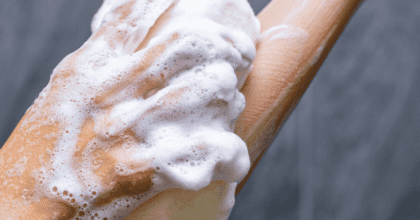One third of US iGens worried about traveling due to mosquito-borne illnesses
As the Zika Virus continues to take hold, it seems fears surrounding mosquito-borne illnesses are leading young US adults to rethink travel plans, opting instead to stay home. Indeed, new research from Mintel reveals that 36 percent of iGeneration* (iGens) and 26 percent of Millennials** agree that they worry about traveling because of mosquito-borne illnesses, compared to just one in five Americans (21 percent) overall. These younger generations are also more likely than average to stay indoors to avoid mosquito-borne illnesses, with 22 percent of iGens and 20 percent of Millennials stating this to be true, compared to 16 percent overall.
69% of adults say that they will avoid traveling to countries affected by the Zika Virus
With mosquito-borne illnesses continuing to spread throughout Latin America and the world, Mintel’s research highlights that concerns about the virus are likely to worsen and force some consumers to change or cancel their travel plans. Some 69 percent of adults say that they will avoid traveling to countries affected by the Zika Virus, increasing to 71 percent of Millennial vacationers.
“As concerns surrounding mosquito-borne illnesses mount, Americans, especially young adults, will continue to worry about traveling to affected areas and will rely more heavily on pest control services and products to combat mosquitoes. Consumers will be looking for more promise of protection and durability in pest control products, creating opportunities for brands to quell consumer concerns in the format and portability of personal repellents and pest control devices,” said Stephen Brown, Household Analyst at Mintel. “Brands would do well to highlight protection against Zika and other mosquito-borne illness in their marketing communications and product labeling.”
US consumers appear even more worried about product safety of pest control products as four in five (81 percent) pest control product users agree some products are too harsh on skin and more than three quarters (77 percent) are concerned about the chemicals used in these products. Consequently, more than two thirds (65 percent) say they aren’t using more pest control products as compared to last year. Indeed, consumers may be wary to take on their pest control problems themselves as 60 percent of pest control users agree that using professional services is safer than using pest control products, with Millennials most likely to agree (70 percent).
61% of pest control product users prefer to use natural,
non-chemical alternatives for repellent.
Concerns about the chemicals in pest control products also indicate an opportunity for using chemical-free ingredients. This is evident among the 61 percent of pest control product users that agree they prefer to use natural, non-chemical alternatives for repellent. Natural options might especially appeal to parents, who are more likely than average to be concerned about product safety and to prefer non-chemical product alternatives (70 percent).
“Pest control products aren’t invincible to the growing demand among consumers for transparency, and brands wanting to appeal to consumers who are concerned about product safety may consider the opportunities in packaging and labeling. Clear labeling which indicates whether a product is free from certain ingredients might offer brands a competitive edge to pest control services. Consumers who use professional services view these as a safer alternative to pest control products, but they also benefit from the expertise of using a professional. In addition, naturally formulated products which resolve minor incidences of pests may appeal to customers looking for a chemical-free option,” continued Brown.
Total retail sales of pest control products and services are expected to increase 6.9 percent in 2016 to an estimated $11 billion. Sales of residential pest control services make up the largest segment in this category and are expected to reach nearly $8.8 billion in 2016, while pest control products are expected to account for $2.3 billion in 2016.
Warmer winters and wet summer months, as well as concerns surrounding the outbreak of mosquito-borne illnesses, have all contributed to driving sales growth. Assuming these trends continue, Mintel forecasts the market to have positive growth by 36 percent through 2021, to reach $14.9 billion.
“As concern about ingredients, manufacturing process, and safety testing has permeated both household and personal care categories, the pest control category is also part of the discussion. Although the pest control market is growing, much of this growth is directed at residential services rather than product sales. At-home pest control products are experiencing modest growth, but most consumers have adverse feelings toward these products likely due to chemicals and other harsh ingredients. These feelings may change as concerns over mosquito-borne illnesses continue to spread, but it may also create opportunities for natural and chemical-free pest control alternatives,” concluded Brown.
*Born between 1995-2007. In 2016, iGens are between the ages of nine and 21.
**Born between 1977-1994. In 2016, Millennials are between the ages of 22 and 39.
Press copies of Mintel’s Pest Control and Repellents US October 2016 report and interviews with Stephen Brown, Household Analyst, are available on request from the press office.
For the latest in consumer and industry news, top trends and market perspectives, stay tuned to Mintel News featuring commentary from Mintel’s team of global category analysts.
-
Mintel StoreGet smart fast with our exclusive market research reports, delivering the latest data, innovation, trends and strategic recommendations....View reports
-
Mintel LeapMintel Leap is a revolutionary new AI-powered platform that will transform your research process....Book a demo
































